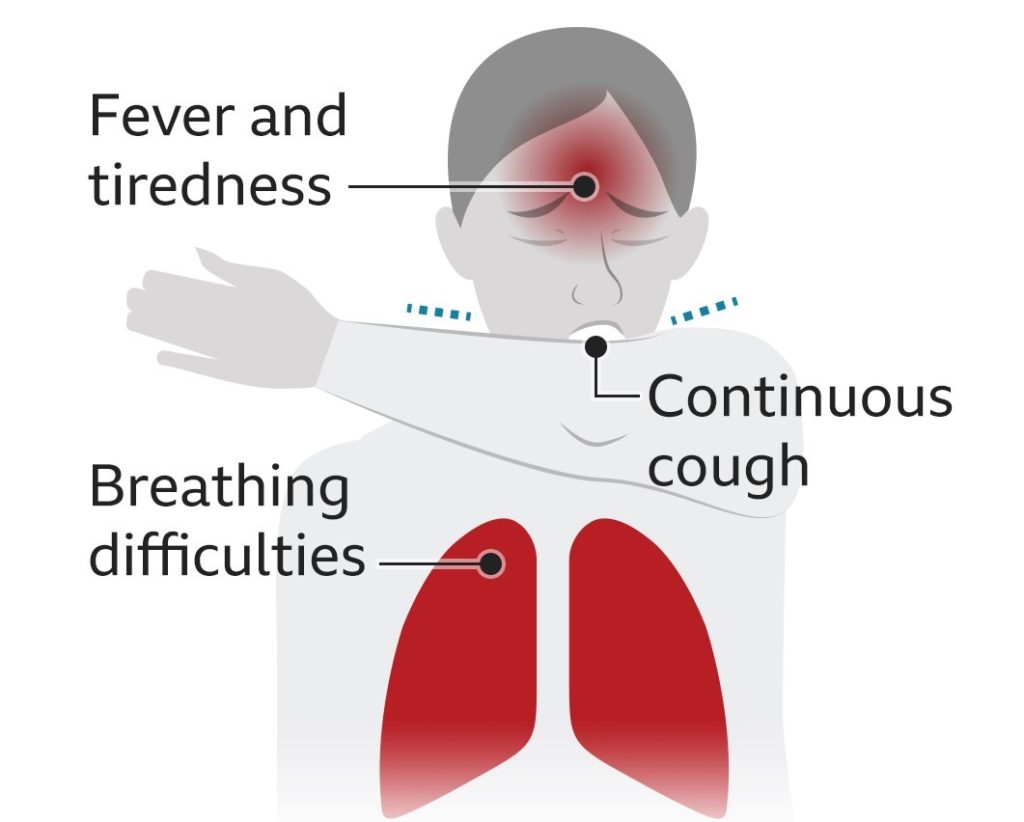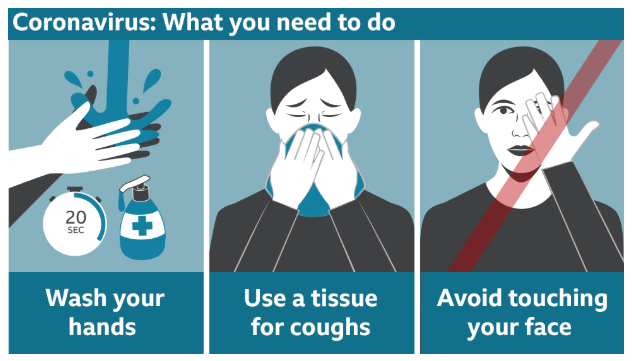Our lives are all dominated by Coronavirus (or COVID-19 as it is sometimes called), but what exactly is it and why is it so dangerous?
What is a Virus anyway?
A virus is an “obligate intracellular parasite”. There. Easy.
Only kidding – let’s explore that some more: viruses are parasites (they depend on their host – a human or animal – to fuel their life cycle) that live in cells (intracellular) and are obligate (they lack their own independant metabolism so are obligated – forced – to live within the cell).
Unlike bacteria, viruses are not cells and they are much, much smaller – about 100x smaller than a bacterium. They live inside their host’s cells and replicate many times, at which point the cell will burst releasing all the new viruses and making you feel ill.
As viruses are intimately connected to the metabolic processes of the host cell it is really hard to produce drugs that can selectively target the virus, but not harm the host, that’s why vaccines have been the main method for controlling them. You’ll have heard of many of the vaccines (or jabs) that help prevent us getting viruses: polio; rabies; yellow fever; measles; mumps and rubella (German measles).
What’s Coronavirus?
Coronaviruses are a family of viruses that can cause potentially deadly diseases in mammals and birds. In humans they’re typically spread via airborne droplets of fluid produced by infected individuals.
First described in detail in the 1960s, the coronavirus gets its name from a distinctive corona or ‘crown’ of sugary-proteins that are on its surface. Its genetic material is the longest of any RNA-based virus – a single strand of nucleic acid roughly 26,000 to 32,000 bases long.
There are four main types of coronavirus named, as is often typical in medicine, after greek letters of the alphabet: Alphacoronavirus; Betacoranovirus; Gammacoronovirus and Deltacoronavirus. (Bonus marks here for who can guess what a newly discovered type of coronavirus might be called…)
The likelihood is that you have already had an alphacoronavirus. In fact you may have had many alphacoronairuses as this is the of virus that causes the common cold.
COVID-19 (SARs-CoV-2) is the coronoavirus that is currently causing the pandemic across the world, and like its fellow betacoronoviruses MERS (Middle East related coronovirus) and SARS (severe acute respiratory syndrome) it can be much more dangerous to humans than the common cold.
How do you catch COVID-19?
The lungs are the most affected by COVID-19 as it accesses the host cells that it requires to survive via a protein called Angiotensin Converting Enzyme 2 (ACE2) that are mainly on the surface of alveolar cells (that are used for gas exchange). The ACE2 molecule spans the cell membrane and allows the virus to enter. Inside the alveolar cells the virus replicates and when the cell bursts it causes damage and oxygen can no longer be absorbed as efficiently.
In order to catch COVID-19 you therefore have to get the virus into the your airways, where it can then enter the cells. It is transmitted in droplets, hence why we are all being encouraged to keep our “social distance” , to wash our hands and not touch our mouths. Although the virus can live outside the body, it is only for a short period of time (up to three days on some surfaces). If we stop giving it an environment to survive and replicate (the human body) then the virus will die out.
What are the symptoms and treatment?
As it is the lungs’ cells that are mainly affected, people who catch COVID-19 may not be able to get enough oxygen into their system. If this is the case they may need extra oxygen, either from an oxygen mask, or in extreme circumstances a breathing machine called a ventilator (which blows a high concentration of oxygen into the lungs). Remember that normally we breath air, which is “only” 21% oxygen, but our lungs are so highly developed that this is enough for us to get what we need.
In COVID-19 people may need much, much higher concentrations of oxygen, and that is why they would need to go to hospital.
Although COVID-19 can affect other organs, the lungs are by far the most common. The virus irritates them and causes the cough, whilst the lack of oxygen can cause shortness of breath,

Just like if you get a cold antibiotics aren’t useful, as these target bacteria.
One way the body tries to help fight viruses is to produce white blood cells. These in turn release certain chemicals called pyrogens. The body’s temperature is regulated by the hypothalamus (in the brain) and this can be affected by these pyrogens and cause your temperature to increase. Some people think that the increase in temperature may also help us fight the infection (after all evolution is a pretty clever thing).
Generally most people will get better with bed rest, paracetamol and keeping well hydrated (just like a cold), but for a few people, whose lungs are already not working as well as they once did (due to age or conditions they already have) COVID-19 can be very serious and some will even die.
Will there be a vaccine?
As we said earlier we already have vaccines for lots of viruses, but developing these can take time. We do produce our own immunity, but only after we have been infected by the virus. This may not help us with this outbreak, but may help in the future.
What can we do?
The best thing we can all do is to listen to the advcie we have been given to stop the spread of the virus. Remember, if it’s not in a human body it cannot survive and replicate. Wash you hands, don’t touch your face (in case there is virus still on your hands), don’t cough on people (or be coughed on) by ensuring you are at least 2 metres (the height of a tall person) from others
The more we can prevent the replication of the virus the sooner this will all be over. Staying at home may seem a bit boring, but the more people who do it the better.
Take care, wash you hands and be safe.
Iain

PS, Alpha, Beta, Gamma and Delta are the first four letters of the greek alphabet. The next is “Epsilon” so if we do discover a new strain of coronovirus it will probably be the “Epsiloncoronavirus”

